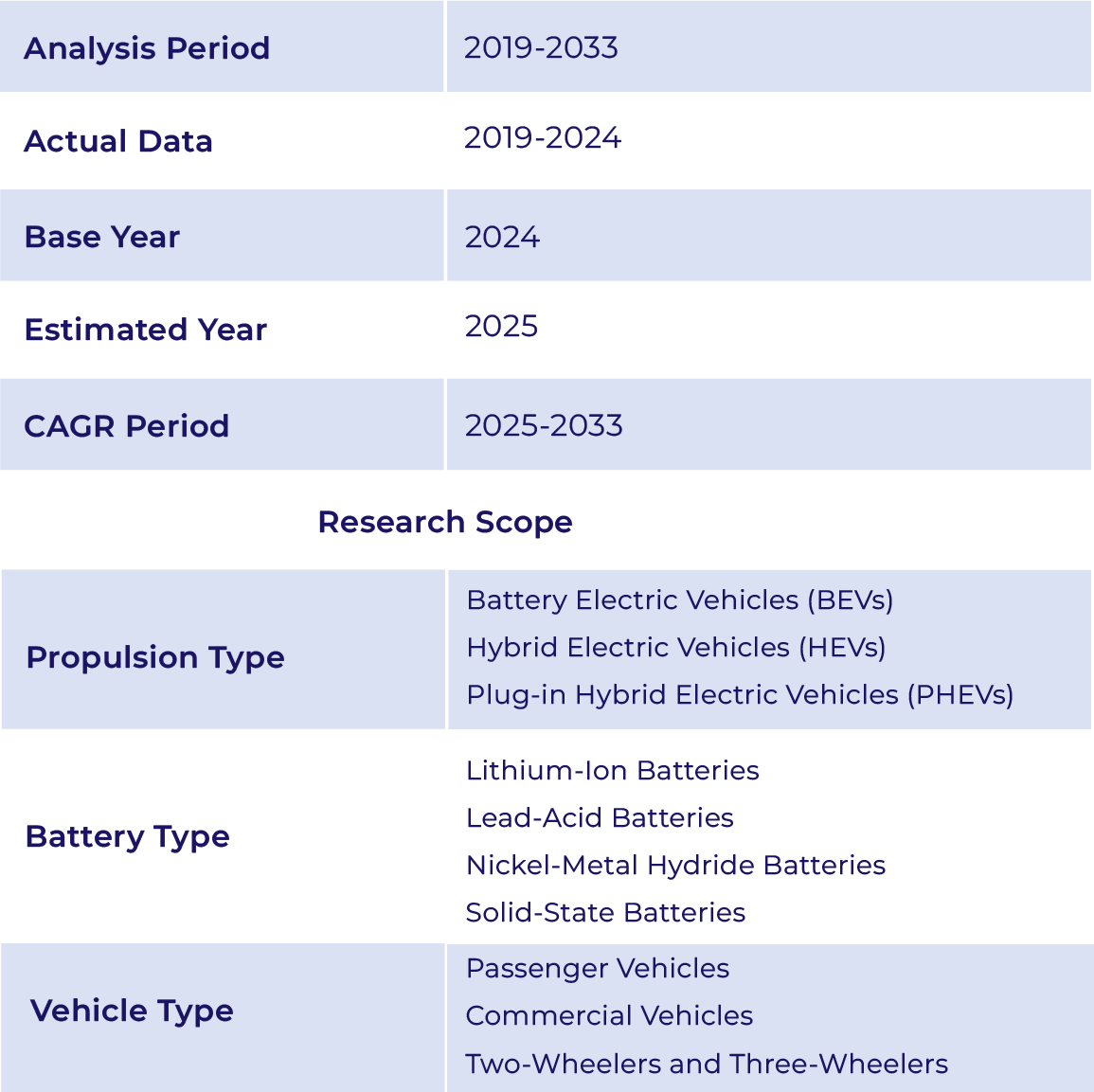Russia Electric Vehicle Battery Market Growth and Performance
- In response to rising demand, the Russia EV battery market recorded a XX% growth rate in 2024, pushing its overall worth to US$ XX million.
- Projections suggest the market will continue its upward trajectory, with a CAGR of XX% anticipated through 2033, ultimately attaining a value of US$ XX million.
Russia Electric Vehicle Battery Market Outlook
Russia’s electric vehicle (EV) battery market is undergoing a transformative shift with its first official entry into large-scale battery manufacturing. In June 2023, Renera, a subsidiary of Rosatom’s TVEL Fuel Company, signed an investment contract for the construction of Russia’s first gigafactory for lithium-ion battery production. This ambitious project, located in the Kaliningrad region, is expected to produce 4 GWh of batteries annually once operational. It represents a foundational milestone for Russia, transitioning from an importer of EV technologies to a potential regional supplier. The gigafactory will focus on producing battery cells and modules for both electric vehicles and stationary energy storage systems. Renera’s move not only positions Russia within the global battery supply chain but also enhances its energy independence and manufacturing resilience. As global EV demand soars, this development sets the tone for Russia’s strategic intent to become a key player in battery innovation and electric mobility infrastructure, both domestically and across Eurasia.
Russia Electric Vehicle Battery Market Drivers
International expansion has emerged as a surprising but significant driver of Russia’s EV battery market. In July 2023, Concordia, a Russian automotive and industrial firm, signed a bilateral agreement with Egyptian authorities to establish an EV component manufacturing plant in Egypt. This facility will focus on producing batteries, electric motors, and inverters to serve growing markets across Africa and the Middle East. This outward-looking strategy reflects Russia’s intent to leverage international partnerships to stimulate domestic innovation and scale battery production capabilities. It also diversifies market exposure for Russian-made battery systems, enabling cross-border technology flows and reducing economic risks tied to regional dependencies. This expansion into Africa may also serve as a test bed for Russian-developed battery technologies, allowing Concordia and similar companies to refine manufacturing efficiencies before full-scale deployment at home. Ultimately, such moves reinforce the notion that Russia’s EV battery industry is increasingly global in scope, aiming to export not only products but also influence in emerging e-mobility corridors.
Russia Electric Vehicle Battery Industry Trends
In a noteworthy evolution of its EV ecosystem, Russia has recently placed a spotlight on research and development. In September 2024, Norilsk Nickel (Nornickel)—a major global producer of nickel and palladium—launched a dedicated EV battery R&D center. The facility is expected to focus on developing advanced cathode materials, optimizing battery chemistry, and enhancing recyclability standards, all vital areas as the global industry pushes for safer and longer-lasting batteries. Located in a high-tech industrial zone, the R&D center is strategically positioned to draw from Russia’s vast mineral resources while collaborating with international researchers and suppliers. Nornickel’s initiative marks a clear trend toward vertical integration, where mining giants are no longer just suppliers of raw materials, but also key stakeholders in battery technology innovation. This also reflects a larger national effort to become less reliant on imported technologies and establish a sovereign innovation ecosystem tailored to Russia’s climatic and geopolitical conditions. As battery R&D becomes more mission-critical globally, this trend will help Russia compete in both commercial and scientific domains of the battery sector.
Russia Electric Vehicle Battery Industry Development
Russia’s energy transition strategy now includes a high-stakes commitment to both electric and hydrogen mobility. According to Hydrogen Central, in early 2025, Russia unveiled a $10 billion national investment plan to develop electric vehicle infrastructure, battery manufacturing, and hydrogen fuel cell technologies by 2030. This is not a symbolic gesture—it's a structural transformation aimed at aligning Russia’s industrial base with future mobility demands. The investment will be channelled into constructing battery production lines, R&D facilities, charging networks, and green hydrogen refuelling stations. Notably, the plan emphasizes synergy between EV batteries and hydrogen fuel cell systems, aiming for hybrid infrastructure that can serve varied mobility needs—from urban cars to long-haul freight. This forward-looking approach illustrates Russia’s desire to hedge against one-dimensional strategies and build a multi-energy platform. Industry analysts view this as a crucial step toward reducing oil dependency and stimulating local tech development. With state-owned enterprises leading the charge and private innovators encouraged through subsidies and co-investment schemes, Russia is laying the groundwork for an integrated and competitive clean mobility sector.
Russia Electric Vehicle Battery Market Scope







